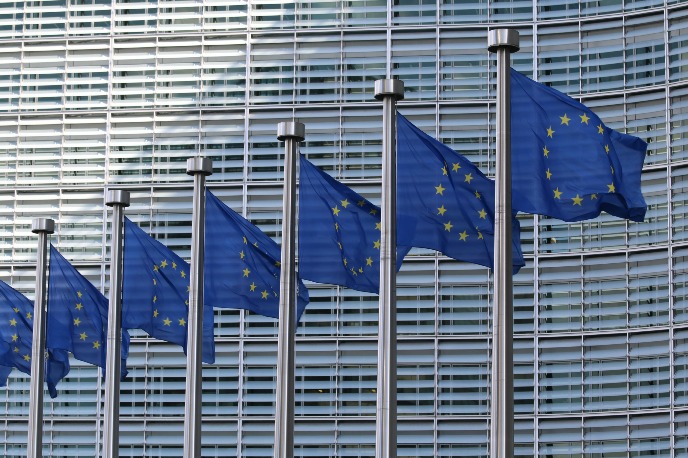European Policy and Governance

The summer school will not be held this year but we hope to organise a second edition in the academic year 2023-2024.
Have you ever wondered how the European Union, its policy-making process and their impact on multilevel governance work? Join the summer school on European Policy and Governance at the University of Groningen!
This summer school will introduce participants to European Union policy-making. A mix of academics and guest speakers will present the participants with a crash-course overview of European politics.
Together with participants, we will discuss and analyze the policy-making processes, the resulting European legislation and how that legislation impacts the politics, economies and societies of the EU Member States.
The building blocks of the summer school are:
-
Lectures on EU legislation as outcomes of decision-making by the European Commission, the Council of Ministers and the European Parliament as well as on the domestic impact of EU Directives and Regulations in the Member States.
-
Practical exercises in which participants process-trace European legislative policy outcomes (upward) and their Europeanization impact for states and their citizens (downward).
-
Guest lectures on the position of the EU in the world, European enlargement process and lobbying by regional governmental bodies. The organizational team aims to hold the third guest lecture onsite at a local/regional governmental institution.
Practical information
|
Dates & location
|
20 - 25 August 2023
|
|
Fees (TBC)
|
€ 400 for students The fee includes participation, lunches, coffee, and social gatherings (dinners and drinks).
|
|
Level
|
Final Year BA/MA/PhD/Postdoc/Practitioners |
|
Academic coordinators |
Dr. Anjo Harryvan |
|
Contact |
summerschoolEPG@rug.nl |
Requirements
The summer school focuses on higher education students as well as young professionals who want to increase their knowledge of EU policy and governance. Students of all levels of higher education are invited to apply for the summer school (final year BA/MA/PhD/Postdoc). We specifically welcome those without prior knowledge on the topic. Enthusiasts from all academic and professional disciplines are welcome.
It is expected that the participants have a sufficient command of the English language to actively participate in the discussions and to present their own work in English.
Course schedule
|
Sunday 20 August |
The first day will focus on getting to know the city of Groningen and the other participants. There will be a meet and greet, city tour by foot followed by drinks and a welcome dinner. |
|
Monday 21 August |
The second day will revolve around European decision-making and the relevant actors involved in it. It will provide you with tools to analyze EU politics and there will be group assignments on the subject. |
|
Tuesday 22 August |
The activities on the third day will be based on the implementation of the information and skills of day two. We will end the day with a visit to a local/regional government institution where we will hear about its relations with the EU. |
|
Wednesday 23 August |
On day four we will look at Europeanization. Based on seminars and practical exercises, we will explore the domestic impact of EU legislation, the impact of member states on EU policy-making and how to analyze both. |
|
Thursday 24 August |
On the fifth day, we will continue working on Europeanization. There will be an informal social program in the evening. |
|
Friday 25 August |
On the last day we will deal with European policy-making and the wider world. We will end the summer school with a closing certificate ceremony and a final social get together. |
Learning outcomes
After this course you will be able to:
- You will comprehend the European Union’s policy-making process and its legislative outcomes.
- You will be able to analyse the coming into existence of EU directives and regulations and their contents as products of various political actors: governments of member-states, the European Commission, the European Parliament, international and non-governmental organisations.
- You will be able to analyse the transposition of EU legislation in the national legal frameworks of its member-states and the resulting impact on the latter’s’ political, legal, economic and social life.
- You will be able to use a variety of internet sources to conduct research in EU policy-making as well as its Europeanization effects on the EU member-states and beyond.
Introduction to lecturers

Dr. Anjo Harryvan
Prof. Dr. Harryvan is Jean Monnet Chair and associate professor of International Relations at the University of Groningen in the Netherlands. He is a senior member of the ‘European Politics in a Global Perspective’ group within the successful diploma courses at the IR department. Dr. Harryvan has teaching experience of over 30 years lecturing European integration and European politics. He published a plethora of books and articles on these subjects, not just for academic discussion but also for the general public.

Thijs de Zee, MA
Thijs de Zee is a Lecturer of European Politics and Society at the University of Groningen in the Netherlands. He is part of the ‘European Politics and Society’ chair group within the BA program European Languages and Cultures. Additionally, Thijs works as an Education and Research Officer at the Jean Monnet Chair for European Politics and Governance.
Application procedure
The summer school will not be held this year but we hope to organise a second edition in the academic year 2023-2024.

Funded by the European Union. Views and opinions expressed are however those of the author(s) only and do not necessarily reflect those of the European Union or EACEA. Neither the European Union nor the granting authority can be held responsible for them.
